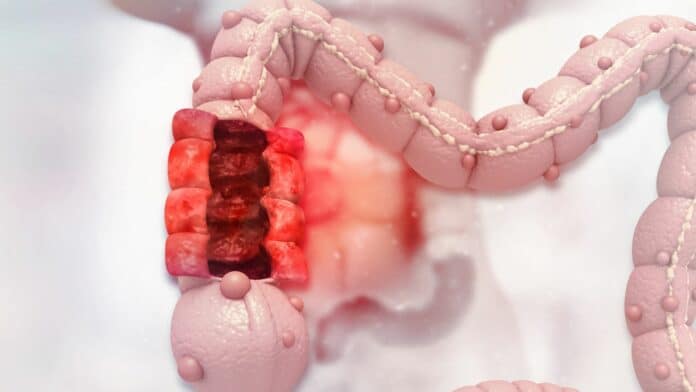Colon cancer is the second most deadly and third most common cancer in the US. The only effective treatment for this cancer is surgery. The immunotherapies that have transformed how advanced cancer is treated have only been effective in a limited percentage of colon cancer patients. That’s why there’s a great need for novel target identification.
Scientists at Mount Sinai’s Tisch Cancer Institute have identified a new gene essential to colon cancer growth and found that inflammation in the external environment around the tumor can contribute to the growth of tumor cells. This is the first time that scientists have found that the environment surrounding a colon cancer tumor can modify a region of DNA called a “super-enhancer,” which is a complicated region with a lot of transcriptional machinery that determines whether a cell is malignant.
The PDZK1IP1 gene, which was not previously recognized as a cancer gene, is controlled by this super-enhancer, the biggest 1-2% of all enhancers in the cell. Colon cancer growth was inhibited when PDZK1IP1 was removed, indicating that PDZK1IP1 and its super-enhancer may be targets for cancer treatments.
Study’s first author Royce Zhou, an MD/Ph.D. student at the Icahn School of Medicine at Mount Sinai, said, “In the United States, colon cancer is the third most prevalent and second most deadly cancer. This cancer relies on surgery for treatment, and immunotherapies that have revolutionized advanced cancer treatment have only worked for a small subset of colon cancer patients. That’s why there’s a great need for novel target identification.”
The PDZK1IP1 gene, which was not previously recognized as a cancer gene, is controlled by this super-enhancer, the biggest 1-2% of all enhancers in the cell. Colon cancer growth was inhibited when PDZK1IP1 was removed, indicating that PDZK1IP1 and its super-enhancer may be targets for cancer treatments.
Senior author Ramon Parsons, MD, Ph.D., Director of The Tisch Cancer Institute at the Icahn School of Medicine at Mount Sinai, said, “What this means for most patients with colon cancer is that inflammation that’s occurring in the tumor is contributing to the tumor’s growth. This stresses the importance of understanding what we can do to curb the inflammatory effects in the colon through prevention or understanding what dietary effects might have on the microenvironment in the colon. Regarding treatment, we have genetic evidence that targeting this gene inhibits tumors. Understanding all these different components will give us better tools to prevent the disease.”
Mr. Zhou said, “This discovery was made possible by studying live tumor tissue and surrounding healthy tissue immediately after the surgeries of 15 colon cancer patients. Preparing and analyzing live cells allowed researchers to see the tumor microenvironment and the genetic and biologic drivers of colon cancer.”
Dr. Parsons added, “We had live specimen live cells straight from the operating room that allowed us to measure the epigenetic state of that tumor immediately. We couldn’t have made this discovery without that infrastructure here at Mount Sinai.”
Journal Reference:
- Zhou, R.W., Xu, J., Martin, T.C. et al. A local tumor microenvironment acquired super-enhancer induces an oncogenic driver in colorectal carcinoma. Nat Commun 13, 6041 (2022). DOI: 10.1038/s41467-022-33377-8
